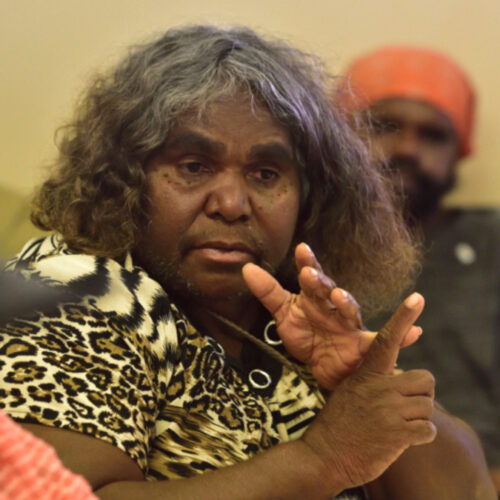
- Reference # HT.5.2122005
- Project Status Current
- Timeframe 3 years (2021 - Aug 2024)
- Project manager Anthony Curro
- CRCNA Funding $955,000.00
- Total project value $2,253,208.00
- Project research participant University of Western Australia ; Kimberley Aboriginal Medical Services ; Broome Regional Aboriginal Medical Service
- Research Programs 5. Northern health service delivery innovation
- Location Broome and regions within the Kimberley
- Health service delivery
- First Nations led business development
Summary
Across the Kimberley region, rates of psychological distress, self-harm and suicide for Aboriginal people are disproportionately high. A recent audit of mental health presentations across Kimberley remote Aboriginal Community Controlled Health Services (ACCHS) by the UWA research team found staff and clinicians spent significant time dealing with patients presenting in an acutely distressed state and that this led to inefficiencies for clinics and ineffective treatment for patients.
This project will test a new on-the-ground approach for health service delivery that is based on knowledge and understanding of how trauma affects people’s lives, their service needs and service usage and can be delivered with existing resources.
This model of care ‘wraps around’ patients, better supporting them at each touchpoint along the care model – from the driver that first engages with them on their way to the clinic, to clinic and community staff that support them on arrival, through to the treating clinicians.
The model re-frames how health staff first engage with distressed patients, moving away from a frame of ‘non-compliance’ to a position of empathy and understanding about what is going on in the patient’s life that has led them to present at the clinic.
Project objectives:
- Develop and deliver a pilot program which tests how implementing a “wrap around”, trauma-informed model of care for patients presenting across five ACCHS in the East Kimberley can improve patient and staff health outcomes.
- Deliver metrics around how the new approach increases health seeking behaviours, reduces violent presentations at clinics, reduces incidents of self-harm, suicide ideation and psychological distress and improve clinical staff retention and job satisfaction.
- Deliver a translation and implementation plan which demonstrates the success of the pilot and is repeatable across other ACCHOs in Northern Australia.
- Deliver an evidence-base to inform further Government investment in trauma-informed models of health care delivery.
Expected outcomes
- Improved patients’ health access and outcomes
- Reduced staff turnover, improved job satisfaction, reduced levels of burnout
- Reduced number of critical incidents involving patient violence in health care services
- Model of trauma informed care materials – inclusive of induction guide, training guides and evaluation available for industry dissemination

